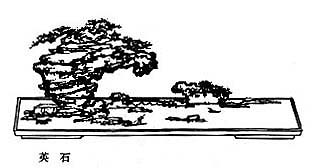論
語
Lun Yu 
 – Les Entretiens de Confucius
– Les Entretiens de Confucius
Le Maître échange propos, anecdotes, brèves paraboles et maximes avec ses disciples. Tr. Couvreur (fr), Legge (en) et Lau (en).
Lunyu XVIII. 6. (479)
Tch'ang Ts'iu et Kie Gni s'étaient associés pour cultiver la terre. Confucius, passant en char auprès d'eux, envoya Tzeu lou leur demander où était le gué1. Tch'ang Ts'iu dit : « Quel est celui qui est dans le char et tient les rênes ? – C'est Confucius », répondit Tzeu lou. « Est-ce Confucius de la principauté de Lou ? » reprit Tch'ang Ts'iu. « C'est lui », dit Tzeu lou. Tch'ang Ts'iu remarqua : « Il connaît le gué. »
Tzeu lou interrogea Kie Gni. « Qui êtes-vous ? » dit Kie Gni. « Je suis Tchoung lou », répondit Tzeu lou. Kie Gni dit : « N'êtes-vous pas l'un des disciples de Confucius de Lou ? – Oui », répondit Tzeu lou. « Le monde, dit Kie Gni, est comme un torrent qui se précipite. Qui vous aidera à le réformer ? Au lieu de suivre un gentilhomme qui fuit les hommes2, ne feriez-vous pas mieux d'imiter ceux qui fuient le monde et vivent dans la retraite ? » Kie Gni continua à recouvrir avec sa herse la semence qu'il avait déposée dans la terre.
Tzeu lou alla porter à Confucius les réponses de ces deux hommes. Le Maître dit avec un accent de douleur : « Nous ne pouvons pas faire société avec les animaux. Si je fuis la société de ces hommes3, avec qui ferai-je société. Si la Voie régnait dans le monde, je n'aurais pas lieu de travailler à le réformer. » Autrefois, sur les confins des principautés de Tch'ou et de Ts'ai (dans le Ho-nan actuel), deux gentilshommes, vivant dans la retraite, s'étaient associés pour cultiver leurs champs. Leurs noms n'ont pas été transmis à la postérité. Les annalistes ont appelé l'un Ts'iu, « Qui s'arrête et ne sort pas du repos », et l'autre, Gni, « Qui reste au fond de l'eau et n'émerge jamais ». (Tchou Hsi)
Couvreur XVIII.6.
Confucius and the two recluses, Ch'ang-tsü and Chieh-nî; why he would not withdraw from the world.
1. Ch'ang-tsü and Chieh-nî were at work in the field together, when Confucius passed by them, and sent Tsze-lû to inquire for the ford.
2. Ch'ang-tsü said, "Who is he that holds the reins in the carriage there?" Tsze-lû told him, "It is K'ung Ch'iû.', "Is it not K'ung Ch'iû of Lû?" asked he. "Yes," was the reply, to which the other rejoined, "He knows the ford."
3. Tsze-lû then inquired of Chieh-nî, who said to him, "Who are you, sir?" He answered, "I am Chung Yû." "Are you not the disciple of K'ung Ch'iû of Lû?" asked the other. "I am," replied he, and then Chieh-nî said to him, "Disorder, like a swelling flood, spreads over the whole empire, and who is he that will change its state for you? Rather than follow one who merely withdraws from this one and that one, had you not better follow those who have withdrawn from the world altogether?" With this he fell to covering up the seed, and proceeded with his work, without stopping.
4. Tsze-lû went and reported their remarks, when the Master observed with a sigh, "It is impossible to associate with birds and beasts, as if they were the same with us. If I associate not with these people, – with mankind, – with whom shall I associate? If right principles prevailed through the empire, there would be no use for me to change its state."
Legge XVIII.6.
Ch'ang Chu and Chieh Ni were ploughing together yoked as a team. Confucius went past them and sent Tzu-lu to ask them where the ford was. Ch'ang Chu said, 'Who is that taking charge of the carriage?' Tzu-lu said, 'It is K'ung Ch'iu.' 'Then, he must be the K'ung Ch'iu of Lu.' 'He is.' 'Then, he doesn't have to ask where the ford is.' Tzu-lu asked Chieh Ni. Chieh Ni said, 'Who are you?' 'I am Chung Yu.' 'Then, you must be the disciple of K'ung Ch'iu of Lu?' Tzu-lu answered, 'I am.' 'Throughout the Empire men are all the same. Who is there for you to change places with? Moreover, for your own sake, would it not be better if, instead of following a Gentleman who keeps running away from men,6 you followed one who runs away from the world altogether?' All this while he carried on harrowing without interruption. Tzu-lu went and reported what was said to Confucius. The Master was lost in thought for a while and said, 'One cannot associate with birds and beasts. Am I not a member of this human race? Who, then, is there for me to associate with? While the Way is to be found in the Empire, I will not change places with him.'
Lau [18:6]

Les Entretiens de Confucius – Lun Yu XVIII. 6. (479) – Chinois on/off – Français/English
Alias the Lunyu, the Lun Yü, the Analects, les Entretiens du maître avec ses disciples.
Le Canon des Poèmes, Les Entretiens, La Grande Étude, Le Juste Milieu, Les Trois Caractères, Le Livre des Mutations, De la Voie et la Vertu, 300 poèmes Tang, L'Art de la guerre, Trente-six stratagèmes
Bienvenue, aide, notes, introduction, table.
Index – Contact – Haut de page























